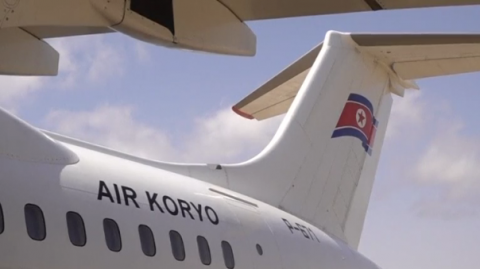
PYONGYANG, North Korea (Reuters) — As tensions on the peninsula ratchet up, the United States is calling for more sanctions against North Korea’s flagship airline Air Koryo, arguing there’s an absence of boundaries between the airline and the country’s air force.
But on the streets of Pyongyang, it’s the soft drinks and taxis where the airline is making its presence felt.
The Air Koryo conglomerate makes cigarettes and cola, and owns a taxi fleet and petrol stations – all of which carry the flying crane logo.
“If you drink it when it’s cold, you can enjoy its rich flavors and sweet scent,” reads the slogan of Air Koryo’s new “Tansandanmul” fizzy drink. “It can help slow the ageing process. It will also will help your kids grow taller and stronger.”
The military-controlled airline expanded into consumer products in earnest last year, visitors to the isolated state say, despite slashed international routes after the United Nations slapped economic sanctions on North Korea for its nuclear and ballistic missile programs.
North Korean state-owned businesses do not publicly share sales or profits information, so it’s hard to gauge how much revenue the respective products of the company bring in.
The US is now considering tougher measures, including a global ban on Air Koryo, to punish North Korea for continuing weapons tests, officials have said.
The general manager at Koryo Tours, Simon Cockerell, says there is a lot of support for Air Koryo products in North Korea, and North Korean experts say any sanctions would likely have more of a political than economic impact.
“Even though they are imposing sanctions against Air Koryo, it will not hugely damage the North Korean economy. However, in terms of politics and the country’s image abroad, sanctions against Air Koryo would give a very negative image of North Korea to international society, and I believe they (those considering sanctions) would expect this impact,” said Kim Yong-hyun.
Few North Koreans are allowed to travel outside their isolated country. The North Korean state-owned airline uses mainly Russian-built Tupolev aircraft on international flights but older, Soviet-era aircraft are used within the country.







